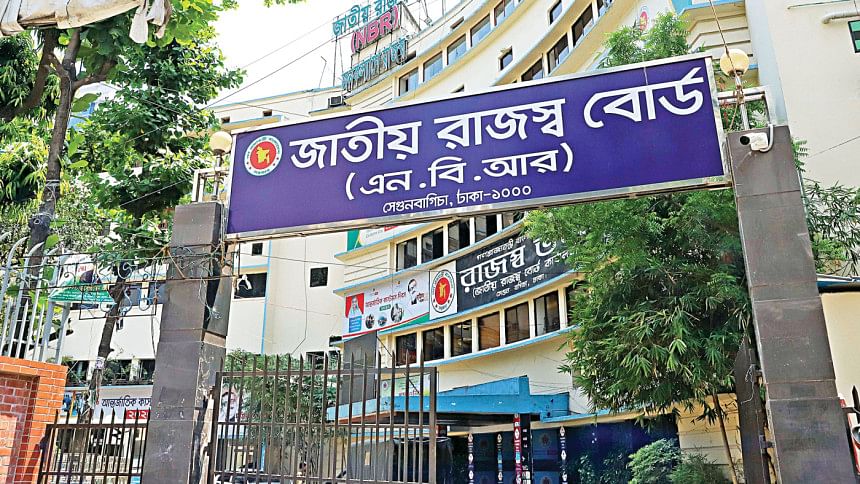Political economy analysis of tax reforms

The tax system of a country has two key elements: tax policy and tax administration. The political economy analysis is vital to understand the factors responsible for facilitating and hindering tax reforms in tax policy and administration in a country and taking reform measures.
FACTORS INHIBITING TAX REFORMS IN BANGLADESH
Article 83 of the Bangladesh Constitution stipulates that no tax shall be levied or collected except by or under the authority of an act of Parliament. This highlights that taxation is a political phenomenon in Bangladesh.
The political economy of tax reforms has to be understood in the broader context of governance in Bangladesh. Significant recent research has focused on the "paradox of Bangladesh," with continued economic growth despite problems of governance, including a high level of corruption as shown by different governance indicators.
The persistent weakness of the existing tax system is the product of well-established informal rules, norms, and networks that have served the broader interests of several political, business, and bureaucratic elites (political settlement). This political settlement has ensured predictably low tax rates and the strategic distribution of economic rents despite the existence of widespread corruption, discretion, and informality.
For example, the low price of cigarettes is a reflection of this political settlement. Cigarette companies try to convince the policymakers and bureaucrats to keep the prices and taxes of cigarettes low on the unfounded pretext of illicit trade in cigarettes.
Despite certain tax reform projects, there is little motivation on the part of political leadership and business people for tax reforms because they derive significant benefits from the favourable tax treatment (tax exemptions) accorded to them.
Many members of Parliament have significant business interests, resulting in conflicts of interest. Conflicts of interest give rise to corruption through making compromised decisions in an official capacity to derive personal benefits. The National Board of Revenue (NBR) is responsible for both tax policy formulation and tax administration, giving rise to conflicts of interest.
A case in point is the VAT reform.
The political economy of taxation in Bangladesh is reflected in the seven-year delay in the implementation of the VAT and SD Act, 2012 because of political and electoral considerations.
Unlike the original VAT Act, 2012 with a single VAT rate and little tax exemptions, the amended VAT Act, implemented in 2019, came with multiple rates (7) and widespread tax exemptions. The most fundamental criticism is that too many VAT rates can cause revenue leakage and severe economic distortions. Available evidence shows that the VAT performance has not improved relative to other taxes since the new law was implemented in July 2019.
The present Income Tax Ordinance, 1984, is outdated to keep pace with the changing need of time. So, a new income tax code is needed to put in place an efficient and modern income tax regime.
We also see this play out within the tax administration. Owing to the absence of substantial automation, the NBR has largely maintained an outdated control-based system, which has allowed tax officials to retain substantial discretion—and thus opportunities for collusion with, or extraction from, taxpayers.
For example, the authority of issuing statutory regulatory orders (SROs), bypassing the Parliament, is an expression of discretionary power of the NBR. At the core of current arrangements is an apparent contradiction: the system promises low and predictable tax rates to key business actors through collusion and corruption while also offering significant discretion and rent-seeking opportunities to some tax officials and political actors.
The basic inefficiency of the tax system has been exacerbated by a high degree of administrative fragmentation. Whereas there has been a trend in low-income countries toward greater integration across administrative units, the NBR remains divided into three highly autonomous tax wings: Income Tax, VAT, and Customs.
The relative absence of data sharing across tax wings severely undermines administration and opens space for collusion, arbitrariness, and abuse, while fragmentation also creates additional costs for taxpayers. The end result of these weaknesses is a tax system characterised by extremely high degrees of informality, widespread discretion, and the regular negotiation of tax liabilities.
At a broad level, the NBR itself has been found to be the most steadfast resistant to tax reforms. As the NBR officials enjoy substantial discretionary power, this opens the door to systemic corruption that is organised and sanctioned at every level of the administration. As such, some officials within the board are strongly resistant to any reform programme that would reduce their discretionary power, including through increased transparency.
For example, the NBR drew an outline of the Modernisation Plan covering tax policy and tax administration during 2011-2016. It was placed before the Parliament. However, with the retirement of the then chairman, little reform measures were undertaken. Thus the strength of bureaucratic resistance is consistent with patterns elsewhere in the civil service.
IDENTIFYING DYNAMICS THAT MIGHT TEND TO SHIFT EXISTING POLITICAL SETTLEMENTS
Except for registration in income tax and VAT, other tax processes are mostly manual. The outbreak of the Covid-19 pandemic has underscored the need and has given an opportunity for full automation of the core functions of income tax and VAT.
MAKING TAX REFORMS EFFECTIVE
Tax reforms must be homegrown. Reforms must be owned by the finance minister with the active support of the NBR and the strong backing of the Prime Minister's Office.
The NBR may draw up a five-year tax reform plan covering several issues.
The first issue may include rationalising corporate tax rates. While India and Pakistan have two corporate tax rates, we have six. The time has come to revisit the corporate tax rate structure to attain the dual objectives of reducing the cost of doing business and enhancing government revenue.
Second, the tax net may be broadened by giving emphasis on withholding taxes, reducing tax exemptions and linking different services with the tax system. Third, the digitalisation of the tax system is essential to improving tax compliance.
Fourth, the tax administration needs to be strengthened to combat tax evasion and improve tax governance. Fifth, tax policy may be separated from the tax administration. The Internal Resources Division of the finance ministry should be entrusted with tax policymaking while tax administration should remain with the NBR.
Tax reforms should be properly reflected in the annual performance agreement of the government. The parliamentary standing committee on the finance ministry needs to monitor the progress of reforms, and the media may report to the public.
Development partners may get involved in the automation of core functional areas of income tax with a particular focus on integrating the automation of the tax system with the existing VAT reform strategy. Both income tax and VAT should use the same platform and share information seamlessly to create synergy.
Development partners may also help the NBR return to the original 2012 VAT Act to the extent possible by consolidating various differentiated rates and turnover-based regimes into a unified structure.
The author is a former chairman of the National Board of Revenue. He can be reached at [email protected].

 For all latest news, follow The Daily Star's Google News channel.
For all latest news, follow The Daily Star's Google News channel. 



Comments